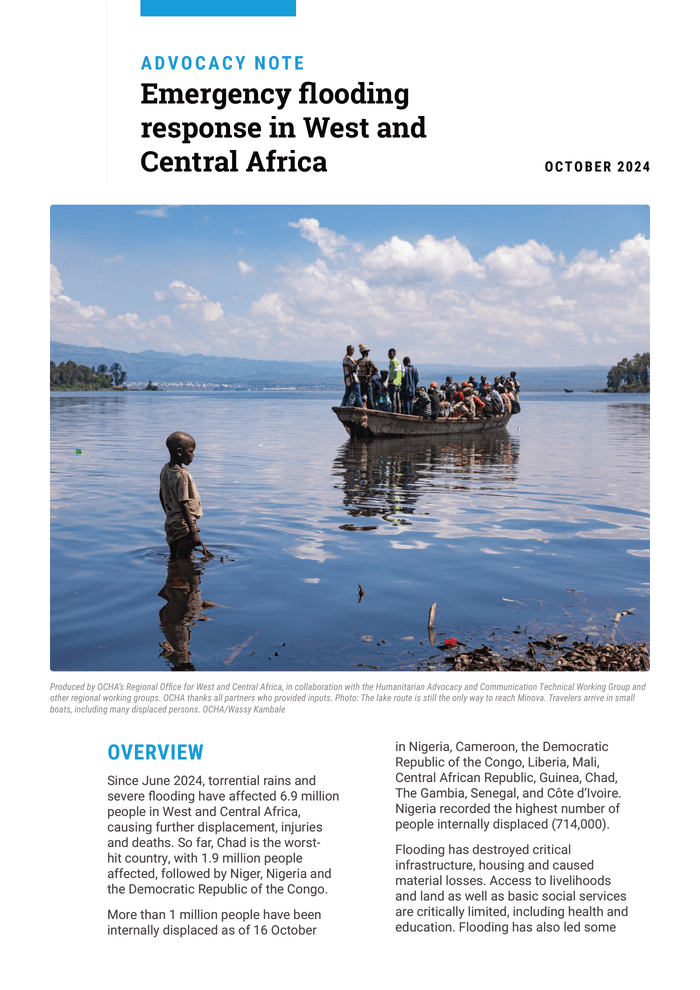attachment
Prepared by OCHA’s Regional Office for West and Central Africa in collaboration with the Humanitarian Advocacy and Communication Technology Working Group and other regional working groups. OCHA would like to thank all partners for providing input.
overview
Since June 2024, heavy rains and floods have affected 6.9 million people in West and Central Africa, causing further displacement, injuries and deaths. So far, Chad has been the worst hit, with 1.9 million people affected, followed by Niger, Nigeria and the Democratic Republic of Congo.
As of October 16, more than 1 million people were internally displaced in Nigeria, Cameroon, Democratic Republic of Congo, Liberia, Mali, Central African Republic, Guinea, Chad, Gambia, Senegal and Ivory Coast. Nigeria recorded the highest number of internally displaced people (714,000 people).
Floods destroyed critical infrastructure and homes, causing property losses. Access to livelihoods, land, and basic social services such as health and education is severely restricted. The flooding has also caused some countries to declare natural disasters and seek international aid, while some countries, including Niger and Mali, have postponed the start of the new school year.
Additionally, access to affected people is difficult for humanitarian workers, especially in hard-to-reach areas where floods have destroyed bridges and roads. Floods exacerbate the vulnerability of many individuals and communities already heavily affected by conflict and violence in the region, increasing protection risks. Vulnerable people, such as internally displaced persons, returnees and refugees, and those already affected by the crisis, are often the most affected by floods. Most at-risk groups include women, girls, children, people with disabilities, people with chronic illnesses, and the elderly.
Humanitarian partners are providing assistance to the most vulnerable people. As of October 17, the Central Emergency Response Fund has allocated US$38.5 million in 2024 to support emergency response in affected areas. However, the need remains high and requires additional resources.
Disclaimer
For more information about the work of OCHA, the United Nations Office for the Coordination of Humanitarian Affairs, please visit https://www.unocha.org/.
Source link Read more related news on Gnews

